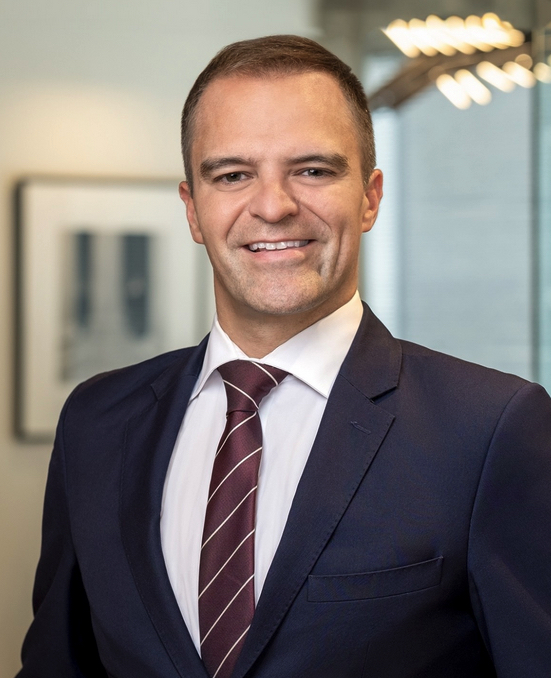Doug Bunch '02
Doug Bunch, W&M '02 (Latin and Government) talks about his career in litigation and public interest law.
What is your graduation year, and did you have a double major?
I graduated from William & Mary in 2002 with a Bachelor’s degree in Classical Studies (Latin) and Government. I subsequently graduated from William & Mary Law School in 2006.
Can you tell us a little bit about your experience at William & Mary? What drew you to Classical Studies?
I loved my time at William & Mary. My William & Mary education broadened my perspective, taught me to think critically and creatively, and further developed my writing and oral advocacy skills. I was specifically drawn to Latin and the Classics because of the insight they offer into the human experience – learning about the history of humanity provides context that guides our ability to solve problems in the world today.
What are you doing now and what is your favorite thing about your job?
 I am a partner at the Washington, D.C. public interest law firm of Cohen Milstein Sellers & Toll PLLC, where I litigate securities class actions on behalf of defrauded investors. Our firm litigates class actions across an array of practice areas – securities, antitrust, consumer protection, employee benefits, civil rights, and human rights – in an effort to hold corporations accountable for their misconduct. Separately, I was appointed by President Biden two years ago to serve as U.S. Public Delegate to the United Nations, and spent a year serving alongside our ambassadors at the U.S. Mission to the United Nations and the U.S. Department of State. In my roles as both a lawyer and a diplomat, I have the opportunity to advance social justice and effect large-scale impact on the world around me – by far my favorite part of the job.
I am a partner at the Washington, D.C. public interest law firm of Cohen Milstein Sellers & Toll PLLC, where I litigate securities class actions on behalf of defrauded investors. Our firm litigates class actions across an array of practice areas – securities, antitrust, consumer protection, employee benefits, civil rights, and human rights – in an effort to hold corporations accountable for their misconduct. Separately, I was appointed by President Biden two years ago to serve as U.S. Public Delegate to the United Nations, and spent a year serving alongside our ambassadors at the U.S. Mission to the United Nations and the U.S. Department of State. In my roles as both a lawyer and a diplomat, I have the opportunity to advance social justice and effect large-scale impact on the world around me – by far my favorite part of the job.
How has your experience studying the ancient world helped you in your career?
I am a better lawyer because of my study of Latin and Classical Studies. When I make an argument before a court, I reach back in my mind to Cicero’s orations against Cataline. My sentence structure mirrors that of Juvenal. The cadence of my words rises and falls to the poetry of Vergil and Catullus. And the construction of my words is deliberate and technically precise, because I’ve intimately studied how words fit together.
I am also a better diplomat. The ability to genuinely connect depends on a deep awareness and understanding of place, of context, of history, and of relationships. Every time an American diplomat negotiates, he or she does so with context in mind. The currency of diplomatic relations, moreover, is cultivation of relationships, forged by shared experiences, through a realization that the world is a big place, much bigger than any one of us, and we don’t know it all. Diplomacy of course requires delivering difficult messages when they need to be delivered, but in the first instance, it depends on listening. It depends on genuine connections that rely on cultural fluency and self-awareness.
More broadly, how has that experience shaped you as a person?
My experience as a Latin major taught me to think critically and analytically. It taught me to craft an argument. And it gave me an appreciation for the history of humanity. Foreign languages are core to the humanities and to the liberal arts. They build not only linguistic fluency, but also cultural fluency. They give students a broad appreciation for the human experience. They teach students empathy, and compassion, and the importance of being open to people who are different from themselves.
What advice would you give a student who is interested in your field?
Reach out to people who are doing the type of work you want to do, and sit down with them to talk about their jobs and the path they took to get to where they are. Take advantage of every available opportunity to expand your perspective. And, remain flexible and open to opportunities you didn’t anticipate – some of the most exciting opportunities that will come your way may be ones you never expected.














